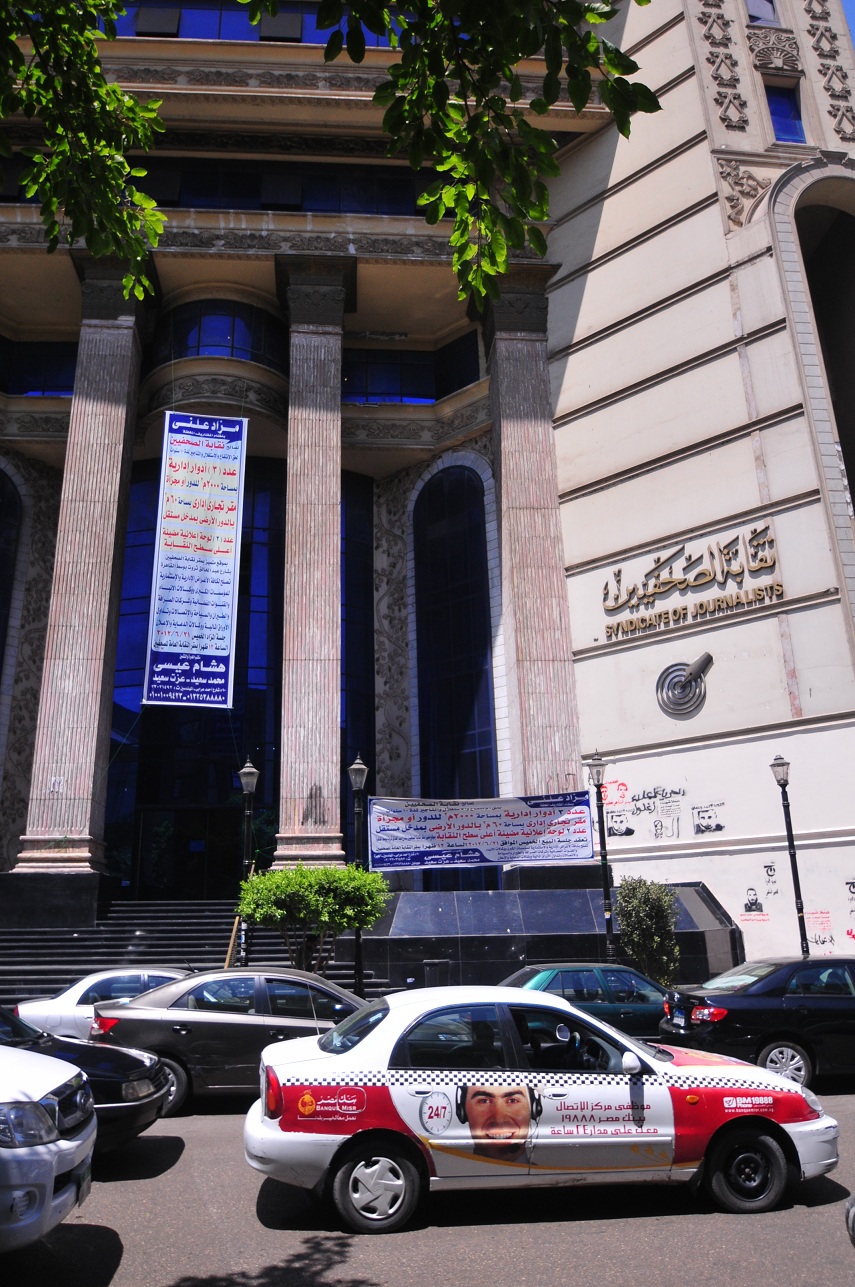We are part of a global movement, said Sarah Rifaat, one of the organizers of 350.org day of climate action, an event that took place last Saturday and saw environmental activists from around the world gathering to put a stop to global warming.
Marking 50 days before world leaders meet at the United Nations climate summit in Copenhagen, ordinary citizens from across the globe were keen on having their voices heard, hoping to push for an effective climate treaty.
Hundreds of Lebanese donning snorkels held demonstrations in key archaeological sites nationwide. In London, more than 600 people gathered underneath the London Eye Ferris Wheel by the River Thames, arranging themselves into the shape of the number five, which was added to a pictures of a ‘three’ and a ‘zero’ from other parts of the worlds.
In Sydney, thousands gathered in protest on the steps of the iconic Opera House; environmental activists in the Turkish metropolis of Istanbul staged their protest in a boat, unfurling a banner reading “Sun, wind, right now!
In Cairo, Egypt, dozens of people gathered for a series of lively events hosted by Rawabet Theater in downtown. The focus of the evening centered on the hammering effects of climate change and ways to combat it, one of 14 initiatives that took place across the country that day.
The line-up included a short introduction by organizers, two stand-up comedy performances, an exclusive screening of Franny Armstrong’s acclaimed documentary thriller “The Age of Stupid and a 30-minute presentation by three environmental experts on how to conserve energy at home.
The definitive highlight of the event was “The Age of Stupid an alarming look into the future of mankind as it knowingly loses the battle against global warming and faces extinction.
The film opens in the year 2055 in an archival museum somewhere in the North Pole. The narrator, played by British actor Pete Postlethwaite, points to the climate catastrophes in the 50 preceding years, occasionally hinting at the “stupidity of mankind for brushing them off.
The cynical archivist chronicles events in the lives of six people who live in six different parts of the world, all entwined with the issue of global warming.
The viewer meets a poor Nigerian woman determined to finance her education as she scuffles for fish in waters polluted by oil giant Shell. Her life is an example of the “resource curse, where the oil rich countries are exploited and left to drown in poverty and lack of health systems by the greedy corporations.
Two Iraqi kids resort to a refugee camp in Jordan after they are separated from their brother during the United States’ war on terror; a British advocate of wind energy is crushed by his opposing neighbors; an aging French tour guide residing in the Alps watches the glaciers as they gradually melt; an aspiring Indian entrepreneur kicks off his country’s third budget airline; a retired oil driller in New Orleans ends up saving more than 100 neighbors after Hurricane Katrina.
While most images are glum, the archivist’s dark humor provides comic relief. He ultimately questions whether humanity was worth saving itself.
Another inspiring segment in the event was a short presentation by Thomas Taha Culhane, who along with four young environmentalists got the audience chattering about what they can do to conserve energy at home, after each had shared his/her tales.
Culhane is the founder of Solar Cities, an organization that installs solar heaters in Cairo’s slums. With a base in Mansheyet Nasser, the organization has installed numerous heating panels and introduced bio gas to one of the city’s most neglected neighborhoods.
Three hundred and fifty
The global day of climate action was called for by grassroots campaign 350.org, an international movement dedicated to raise awareness about the effects of global warming and a platform to discuss solutions to the mortal problem.
The number 350 referrs to CO2 parts per million in the earth’s atmosphere that scientists have identified as the safe limit for humans to continue life on earth.
Five months ago, Sarah Rifaat was invited to take part in a three-week seminar in Turkey where participants from around the world met to discuss methods to use art and the media in campaigns to raise awareness about climate change.
“The idea is to use the number 350 as a motive to battle climate change, Rifaat told the audience.
By staging worldwide demonstrations and awareness sessions, environmental activists are putting pressure on policy makers who will meet in December to reevaluate the Kyoto Protocol, the United Nations Framework Convention on Climate Change, which expires in three years.
In a rare collective sign of dedication to the cause, at Rawabet, members of several environment-friendly initiatives took part in the global day of climate change.
Egypt Carpoolers, Cairo Cyclers and World Wide Views (WWV) were present at the event.
Carpooling and cycling squads are promoting greener modes of transportation; WWV is an international project with the aim to communicate messages from ordinary citizens across the world to the policy makers in Copenhagen.
The large crowds gathered at Rawabet indicate a growing concern with climate change, yet much of society is still left in the dark with regards to the problem. Whose responsibility is it to spread the word? Well, according to Salah Arafa, pioneer of community-based participatory development in Egypt and guest speaker, “It’s the responsibility of those who know. -Additional reporting by AFP

